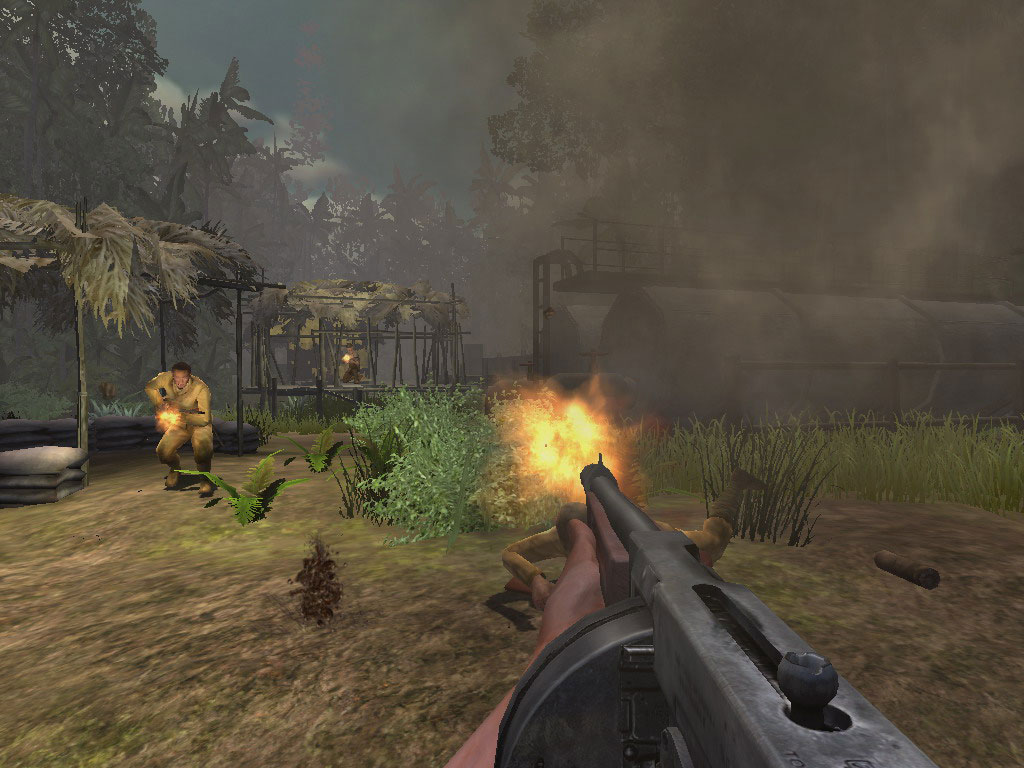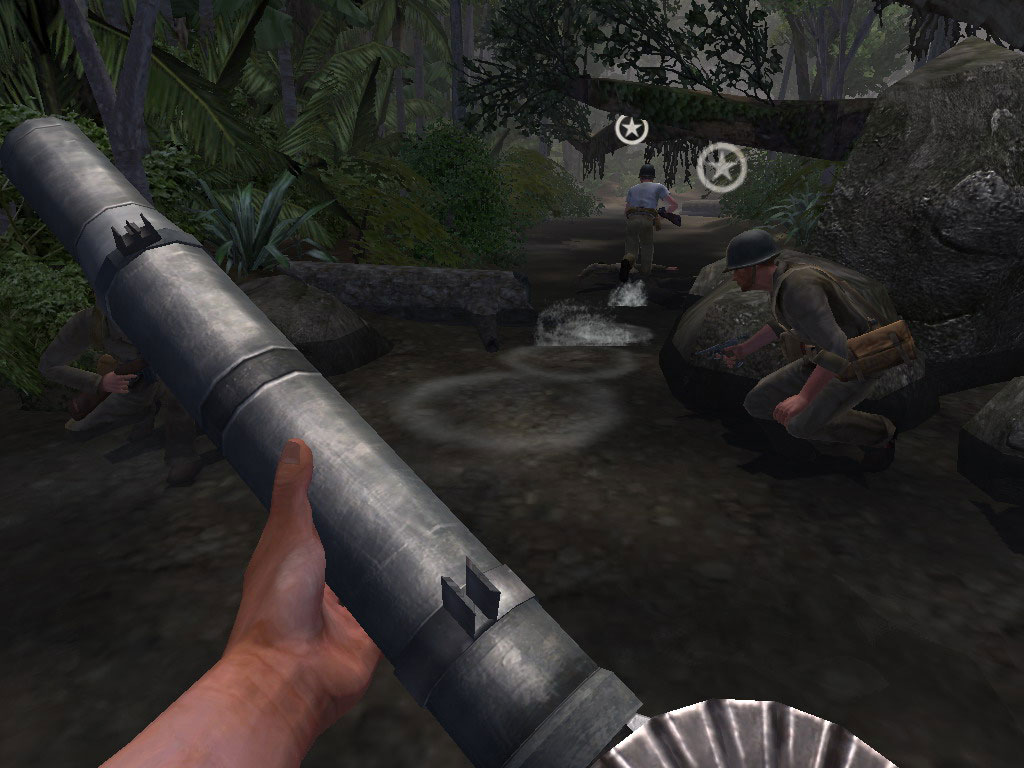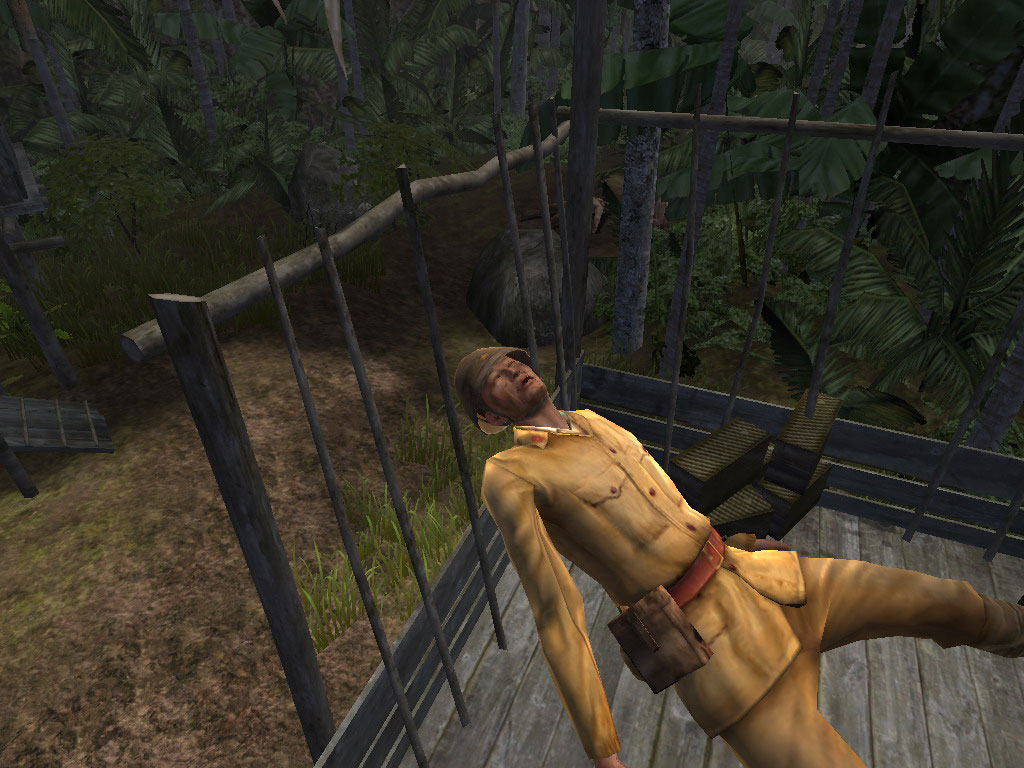Medal of Honor Pacific Assault Designer Diary 3
Ever wonder what it's like being a game developer? Lead designer Dave Nash walks us through one of his days. Here's a hint: it involves a lot of meetings.
Developing games is not all fun and games. In fact, it can be a hugely time-consuming job. To illustrate, Dave Nash, the lead designer of the upcoming Medal of Honor Pacific Assault, was kind enough to walk us through one of his typical days as this anticipated first-person shooter winds its way to completion. In Pacific Assault, you'll play as a Marine Corps rifleman caught up in the intense battles of the Pacific theater of operations.
Behind the Green Curtain
By Dave NashLead designer, Electronic Arts
Contrary to what seems to be popular belief, making video games does actually take some hard work. The responses I get from people when they find out what I do for a living never ceases to amaze me. Things like "Oh, wow, that must be fun--sitting around and playing games all day" and "Must be rough. Have you ever had a real job?" are incredibly common. Don't get me wrong, being a game developer is a great job to have, but not for the reasons that people outside of the industry think. We make games because we love them--both playing them and creating them. We spend absurd amounts of time away from our families over the course of a given project because we are driven to make an entertaining product that gamers around the world will enjoy.
In order to prove my point that we developers don't sit around on our keister all day eating pizza and playing Space Invaders, I thought I'd give a brief glimpse into a typical day of work for me, as lead designer of Medal of Honor Pacific Assault.
8:25am Dropped my daughter off at preschool, then headed down the hill to the office. Coffee, glorious coffee, awaits me!
9:09am Finished working on final spec for our corpsman (medic) AI behavior with senior producer Brady Bell. By now, half a dozen other issues have come and gone across my desk:
- Enemy radioman because he is buggy. Need to get one of our designers on it right away!
More focus-group testing tonight. Before we have consumers play, let's determine if the level is too difficult. Maybe we need to add more ammo.
Ugh, got some bullet hit decals floating in midair. I'll need to get the artists to check the collision boxes of those rocks.
Need to wrap up my developer diary for GameSpot today. Time to get cracking.
9:33am Loaded up DevTrack, the system we use to track game development. This is the software we use here at the office to track the bugs in our game. As the project gets nearer to shipping, every member on the team is required to check the bug database on a daily basis to make sure nothing is sitting in their queue that will block others from doing their work. I was good to go on that front, but I ended up writing a couple of new bugs for some of the other team members. (AI characters are missing some dialogue, and the radio guy still has an invisible radio.)
9:41am Found out that our single-player demo level (for which I am responsible) had a minor bug where the icons on the player's compass that indicate where friendly squadmates are were not drawing correctly. Fixed a couple of lines of code in the level's script and launched the level to verify that the problem was fixed.

9:53am Fired up our source control program, alienbrain. I'll try to explain what this is in as basic terms as possible. Game developers keep all of the code, assets, and levels that combine to make up a video game stored on a company network. Source control programs provide access to all of these thousands and thousands of files. Whenever someone wants to alter one of these files (in my case, one of the level scripts for the demo), they have to load up the source control software, "check out" the file (in most cases only one person at a time can change a file, to avoid duplicated or lost work), change the file as necessary, and then "check it in." Think of it like a huge library full of the files that make up a game (as opposed to books). Now that I've updated the demo with my bug fix, everyone else on the team can get my change and see that the bug is gone. Problem solved!
10:28am Had a quick chat with a programmer about whether or not some new HUD (heads-up display) icons are bright enough, before heading to our 10:30 team leads meeting. This is a daily meeting the team leaders have in order to go over any current pressing issues.
Killing Bugs
11:45am Went directly from our leads meeting to talk with our AI programmer about squad behavior. (If you're starting to think I'm in a lot of meetings, you're right.)

One of our big challenges on this game is figuring out the best way for the player's squadmates to behave. Should they follow him around every step of the way? Should they lead him through the levels? Should they make tactical combat decisions all on their own? Should the player make those decisions for them? All, or none of the above? We're fortunate to have most of these issues worked out at this point, but we still have plenty of tuning to do.
12:30pm Lunch time! Instead of eating lunch, I head down to the beach with some of the guys for a couple of games of volleyball. Life in Southern California sure has its benefits. You know what they say: All work and no play makes Jack a dull boy...
1:40pm Back from lunch. Ran into our AI programmer on the way back to my desk. It seems as though our bad guys are way too good, so we talked about ways of getting them to hit their targets a little bit less, particularly when they are using automatic weapons. Apparently, going up against weapons firing 400 to 500 rounds per minute is pretty tough if they hit you every time. "War is hell!" I say, before conceding the point and agreeing to some of the suggested changes that will make the battles a little more balanced. Gamers like a challenge, sure, but they also like a shot at winning!
2:00pm Another swarm of issues come my way over the next hour. One of the most interesting aspects of my job is the enormous variety of problems that must be overcome and decisions that must be made on a daily basis. Here are a few more examples:
- Apparently a bug has come up that manifests itself by arming our enemies with machine guns by default (as opposed to rifles, as most Japanese soldiers would have had during World War II). Well, no wonder it seemed hard! Everyone's got machine guns! I quickly get this problem fixed; it'll be ready for the next build.
Decided not to change the opening movie for one of the levels, since the animators have gotten it looking pretty swanky. Reminded them to add some dramatic pauses between the dialogue lines to help pace the scene better.
Gave some more thought to how much time the player's squad should wait before deciding which combat tactic it should use. Is the length of time good now, or should we tune it further? It seems OK right now, but we'll keep play-testing it until it's perfect.
3:30pm Bug triage meeting. This is a big meeting where the team leaders comb through the bug database and we prioritize and schedule the pending issues. We take a couple of hours to talk about any problems with the code and forward the bugs to the people best equipped to fix them.
5:30pm Meeting with executive producer to go over the results of the latest focus group. He was pretty psyched, and the team is feeling inspired by the feedback we got on our new Combat Squad Control feature. The great thing about our new squad AI is that you can either let them decide for themselves what to do in a battle, or you can take control and give them the orders yourself.
6:07pm Head downstairs to grab some dinner. Tonight's delicacy is tuna casserole, which I eat at my desk while I try to catch up on e-mails. I usually get around 60 to 70 e-mails a day, but today is a doozy--my inbox is pushing 100.

7:15pm Time to install the latest multiplayer code for tonight's play test. Yes, that's right--this is the part of my job that makes people jealous! It's time to get some heavy playtime! Tonight, I'm playing as if I'm a customer who recently purchased our game and is trying out multiplayer for the first time. This means paying attention to big-picture things like ease of use, fun factor, map layout, and stuff like that. It's a funny paradox that until the project ships, we aren't really playing the game to have fun, but we do have to make sure the game is fun to play.
8:20pm Done with the multiplayer testing for tonight. Time to compile some notes for the multiplayer team and head for home.
8:52pm Finished writing up multiplayer notes and putting the finishing touches on today's diary. If I hurry, I can make it home in time to kiss my daughter good night. Lights out!
Got a news tip or want to contact us directly? Email news@gamespot.com
Join the conversation